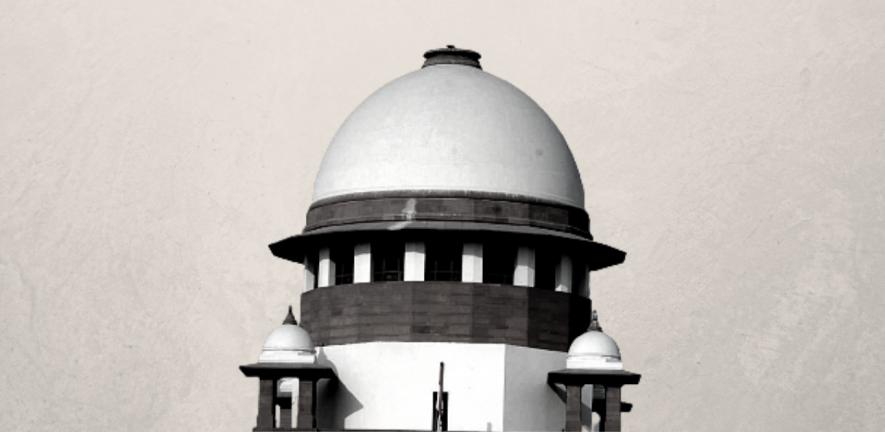How Late Can Court Add New Accused Persons in Criminal Case?

Does a trial court have the power under the Code of Criminal Procedure (‘CrPC’) to summon new accused persons on the same day it convicts the original accused? The Supreme Court this week set out to clarify at what stage an order under Section 319 of the CrPC can be passed to add new accused persons to a trial.
A Constitution bench headed by Justice Abdul Nazeer and comprising Justices B.R. Gavai, B.V. Nagarathna, V. Ramasubramanian and A.S. Bopanna heard criminal appeal petitions by Indian National Congress legislator from Punjab, Sukhpal Singh Khaira and others on the application of section 319 and reserved the matter for judgment after three days of lengthy arguments.
The Supreme Court in 2019 had raised questions regarding the scope of section 319 and referred them to a Constitution bench.
Section 319 allows a trial court, in the course of enquiry or trial in a criminal case, to implead a person where it appears from the evidence that any person, not being the accused, has committed an offence for which such person could be tried together with the accused.
Senior advocate P.S. Patwalia, appearing for Khaira, argued that the trial court had no jurisdiction to summon additional accused, having pronounced its judgment against the persons originally accused in the case. He contended that provisions of section 319 continue to apply only till the conclusion of the arguments in the main trial and called the summoning order of the trial court “illegal”.
Meanwhile, Advocate General of Punjab, Vinod Ghai argued that the pronouncement of decision regarding the guilt of an accused does not indicate the end of a trial; rather, it is only when the quantum of sentence is pronounced that the trial concludes.
The amicus curiae in the matter, senior advocate S. Nagamuthu, also made his submissions.
Trial court adds new accused after conviction
The Constitution bench review originates from a first information report filed in March 2015 under the Narcotic Drugs and Psychotropic Substances Act, the Arms Act and the Information Technology Act against 11 accused persons, which did not include Khaira, who was then the Leader of Opposition in the Punjab Legislative Assembly. As one of the accused was absconding, the trial proceeded against ten persons at the Sessions Court in Fazilka, Punjab.
In September 2017, the prosecution filed an application under section 319 for summoning additional five accused persons, including the present petitioners Khaira and two others. In the meanwhile, while hearing a petition for grant of bail by one of the ten accused, the Punjab and Haryana High Court directed the trial to be completed within three months.
Acting according to the orders of the high court regarding timely conclusion of the proceedings, the trial court convicted all ten persons accused on October 31, 2017. On the same day on which the judgment was pronounced, the trial court accepted the application filed under section 319 and ordered the summoning of five additional accused persons, including Khaira, to face trial as additional accused.
Khaira challenged the summoning order at the Punjab and Haryana high court in November 2017. The high court quashed the non-bailable warrants issued against Khaira, but refused to quash the order affixing him as an accused.
In 2019, a three-judge bench of the Supreme Court, led by former Chief Justice of India N.V. Ramana, referred the question of application of section 319 to a Constitution Bench for further hearing.
‘Case covered by plain reading of Section 319’
Amicus Curiae Nagamuthu submitted that the trial comes to an end as soon as the order of sentence or acquittal is pronounced. At any stage before the judgment is pronounced, an application under section 319 may be filed and decided upon, he stated.
The bench questioned Nagamuthu on various permutations that might arise in regard to the application of section 319. One of these questions was: In case an application under section 319 is allowed, does the court have to necessarily conduct a fresh trial against all the accused?
Nagamuthu replied that it is at the discretion of the trial court to order either a joint fresh trial for all the accused or to try the new accused separately while it pronounces the judgment against the original accused. He opined further that once an application under section 319 has been allowed, all witnesses that had been examined before have to be examined afresh insofar as the role relating to the new accused is concerned.
Patwalia argued that once a judgment on the guilt of the accused has been pronounced, the provisions of section 319 are not available for application, which happened in Khaira’s case. The trial court judge had become functus officio in relation to the application under section 319 when it recorded the judgment of conviction of the original accused persons on October 31, 2017 and therefore, according to Patwalia, the impugned order summoning the additional accused was illegal.
Patwalia emphasised on the language of section 319(1), which uses the phrase “in the course of any inquiry into, or trial of, an offence”; this, he submitted, makes it clear that an order under section 319 cannot be passed after the order of conviction.
“My case is completely covered by the very plain reading of Section 319”, Patwalia stated.
Ghai, appearing for the Punjab government, argued that the pronouncement of conviction order does not imply the end of trial, since the trial court judge continues the application of mind till the quantum of sentence is argued upon and ultimately announced. It is only when the quantum of sentence is announced the trial concludes.
Therefore, the court was at liberty to issue a summoning order after the pronouncement of conviction, until it passed the sentencing order, Ghai said, adding, “The judgment is only complete when the sentence is pronounced.”
Ghai’s argument, however, does not consider the situation in which a court acquits an accused and there is no order of sentence to be passed at a later stage. If this had been the case in Khaira’s case, Ghai’s argument would have been infructuous.
Get the latest reports & analysis with people's perspective on Protests, movements & deep analytical videos, discussions of the current affairs in your Telegram app. Subscribe to NewsClick's Telegram channel & get Real-Time updates on stories, as they get published on our website.
























